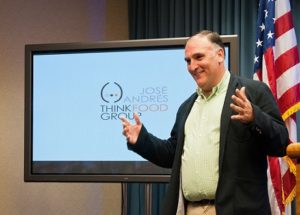Go Lean Commentary
Good Project Management = Good Leadership.
The Art & Science of Project Management is just one way of improving leadership. As related in the course of this series on Good Leadership, it is possible to change the habits and practices of the leadership of any society. Start at the top or start with the head and the body will follow.
This is a discussion about “tools and techniques”. As the world advances, not only do our tools – think computer hardware, software and communication systems – become more efficient and effective, but also the techniques …
Technique – Lexico, powered by Oxford
A way of carrying out a particular task, especially the execution or performance of an artistic work or a scientific procedure.
Technological tools and techniques evolve … over time.
Speaking of technological evolution, there used to be a time that people with professional careers didn’t know how to …
Type; (think typewriter).
… lawyers, accountants, managers and other occupations would simply dictate (live or into a “Dictaphone”) or wrote freehand and someone else would do the actual typing.
 That is right; the typewriter was only used by secretaries, journalists and/or authors; (think Murder She Wrote opening credits). There were jobs like “Typing Pool”, Key-Punch Operators and Data Entry Clerk. Previously, the professional staffers would simply delegate their typing duties to these clerical specialists. In fact, the job title “Clerk/Typist” still exists in the office hierarchy, popular in many government agencies, even though there may be no more typing in their duties.
That is right; the typewriter was only used by secretaries, journalists and/or authors; (think Murder She Wrote opening credits). There were jobs like “Typing Pool”, Key-Punch Operators and Data Entry Clerk. Previously, the professional staffers would simply delegate their typing duties to these clerical specialists. In fact, the job title “Clerk/Typist” still exists in the office hierarchy, popular in many government agencies, even though there may be no more typing in their duties.
Then the world changed; driven mostly by technology advances. The Personal Computer was introduced in 1981; then smartphones in the 2000’s; now everyone knows how to type, and do their own typing. The workplace adapted to the new normal.
More technological advances; more adaptation … this time with project leadership. As related, the Art & Science of Project Management is just one form of leadership; good Project Management is part-and-parcel to Good Leadership. The importance of this Art & Science is related in the 2013 book Go Lean…Caribbean with this quotation (Page 109):
10 Ways to Deliver – # 1: Lean-in for the Caribbean Single Market & Economy initiative: Caribbean Union Trade Federation (CU).
… There are many projects that must be delivered on time, within budget and with a measurable satisfaction. These include Public Works, Information Technologies, Industrialization and others. Embracing a technocratic ethos means that these projects cannot be left to chance and hope for the best. They must be delivered. The CU envisions strict project management disciplines in the planning and executions of these regional endeavors.————-
The Bottom Line on Project Management Office
A Project Management Office (PMO) is a group or department within a business, agency or enterprise that defines and maintains standards for project management within the organization. The PMO strives to standardize and introduce economies of repetition in the execution of projects. The PMO is the source of documentation, guidance and metrics on the practice of project management and execution. In some organizations this is known as the Program Management Office (sometimes abbreviated to PgMO to differentiate); the subtle difference is that program management relates to governing the management of several related projects. The Project Management Institute (PMI) Program Management Office Community of Practice (CoP), describes the PMO as a strategic driver for organizational excellence, which seeks to enhance the practices of execution management, organizational governance, & strategic change leadership.PMOs may take other functions beyond standards and methodology, and participate in Strategic project management either as facilitator or actively as owner of the Portfolio Management process. Tasks may include monitoring and reporting on active projects and portfolios (following up project until completion), and reporting progress to top management for strategic decisions on what projects to continue or cancel. Traditional PMOs base project management principles on industry-standard methodologies such as Six Sigma, CMM, Agile and PRINCE2 – (an acronym for Projects in Controlled Environments, version 2); it is a project management methodology. It was developed by the UK government agency Office of Government Commerce (OGC) and is used extensively within the UK government as the de facto project management standard for its public projects).
As the tools and techniques evolve, Agile is the new wave in Project Management. This allows for the role of skilled project managers in societal deliveries; (or skilled project delivery even without project managers). See how this actuality was related in the Go Lean book.
10 Ways to Deliver – # 2: Agile – Lean
Agile project management is an iterative and incremental method of managing the design-and-build activities for engineering, information technology, and new product or service development projects in a highly flexible and interactive manner. Agile, linked to lean techniques, (delivering more value with less waste) is best used in small-scale projects.
There are many flavors – methodologies and frameworks – of Agile. These refer to the values and principles espoused in the Manifesto for Agile Software Development (2010).[5] These underpin a broad range of software development frameworks, including Scrum, Kanban.[6][7] and SAFe, the most popular subset. See more details on SAFe here; (and related VIDEO’s in the Appendices below):
The Scaled Agile Framework (SAFe) is a set of organization and workflow patterns intended to guide enterprises in scaling lean and agile practices.[1][2] Along with large-scale Scrum (LeSS), disciplined agile delivery (DAD), and Nexus, SAFe is one of a growing number of frameworks that seek to address the problems encountered when scaling beyond a single team.[3][4] SAFe is made freely available by Scaled Agile, Inc., which retains the copyrights and registered trademarks.[5]
SAFe promotes alignment, collaboration, and delivery across large numbers of agile teams. It was developed by and for practitioners, by leveraging three primary bodies of knowledge: agile software development, lean product development, and systems thinking.[6]
The primary reference for the scaled agile framework was originally the development of a big picture view of how work flowed from product management (or other stakeholders), through governance, program, and development teams, out to customers.[7][8] With the collaboration of others in the agile community, this was progressively refined and then first formally described in a 2007 book.[9] The framework continues to be developed and shared publicly; with an academy and an accreditation scheme supporting those who seek to implement, support, or train others in the adoption of SAFe.
Version 4.5, was released in June 2017[10] while the latest edition, version 5.0, was released in January 2020.[11]
While SAFe continues to be recognised as the most common approach to scaling agile practices (at 30 percent and growing),[12][13][14], it also receive criticism for being too hierarchical and inflexible.[15]
But the way technology advances and evolves, the only constant to change is change itself. So now even the “new thing” of Agile is being supplanted with an even “newer thing”. See this comment here from a relevant authority, and respected co-worker:
Quotation – Suman Surabi, Scrum Master with Daimler Benz (Mercedes-Benz Financial):
Agile is getting diluted…. SAFe and Kanban methodologies are being projected/becoming more popular these days.
If you looked 10 years back, or earlier, Project Management being very popular; then after from 2011-2016/17, Agile become very popular; now after especially from last 2 years SAFe is being projected by others as the popular methodology; even I agree with this to some extent.
… if you see the trends these days, the PM role has become negligible as many projects are going without PM’s – they may only have Product Owners, Scrum Masters and Product Managers. Where as in pure Agile projects, we used to have PM’s, now we see the trend for projects to be run without PM’s.
This commentary presents some strategies, tactics and implementations for pursuing the goal of reforming and transforming the Caribbean region. This commentary, along with the whole output from the movement behind the Go Lean book, asserts that Good Leadership is within reach for the Caribbean member-states. Just a little effort by the right people in the right positions and boom: Change, elevation and progress for everybody. “We” can do more with less.
Every month, the Go Lean movement presents a Teaching Series on a subject germane to Caribbean life. For this May 2020, our focus is on Good Leadership, positing that we need Good Leadership now more than ever, as the world battles the Coronavirus pandemic. This is entry 3 of 6 for this series, which details how to employ the tools and techniques of Agile to deliver projects on time, on budget and with a measurable satisfaction. The full catalog for this month’s series is listed as follows:
- Good Leadership – Inaction could be deadly
- Good Leadership – Caring builds trust; trust builds caring
- Good Leadership – Agile: Next Generation of leadership and project delivery
- Good Leadership – Hypocrisy cancels out Law-and-Order
- Good Leadership – Example – “Leader of the Free World”?
- Good Leadership – Example – For mitigating crime
There are no Ands, Ifs or Buts; we need Good Leadership – among our political, corporate, religious and civic stakeholders – to survive and thrive as a society. We needed this before this COVID-19 pandemic, and we will need it afterwards.
This theme, “effective leadership tools and techniques”, shows the positive consequences of leadership attempting to get better in their deliveries. The points of better deliveries, using lean-agile methodologies in a corporate setting (i.e. CitiGroup) was elaborated in a previous blog-commentary from August 9, 2018:
‘Lean Is’ as ‘Lean Does’ – Good Project Management
“It is good to be lean”.
But lean does not just happen, it takes real effort to be lean.
This is the awakening, right now at the Wall Street Big Bank CitiGroup. They are making an all-out effort to “do more with less” and they are thusly investing in “process and people” or “people and process” to be lean. They have launched an all-encompassing program branded CitiLean – a continuous improvement program with tangible and measurable benefits to Citi and its customers. This features “process and people” in every sphere of Citi’s operations: employees, contractors, suppliers and vendors. In fact, they even present an annual Lean Partner Award to recognize the supplier that most embodies the spirit of CitiLean.
The Go Lean book … asserts that any Caribbean super-national governance must be a lean operation, embracing the best-practices of the Art & Science of lean methodologies. The book opens with this introduction of lean (Page 4):
The CU will also be lean (adjective), in that it will not feature a “fat” bureaucracy. To the contrary, the institutions of the CU Trade Federation will embrace lean, agile, efficient organization structures – more virtual, less physical, more systems, less payroll. This will result in less of a tax burden for the people of the Caribbean.
Also, consider this sample of previous submissions of Good Leadership in corporate settings:
| https://goleancaribbean.com/blog/?p=19669 | Keep the Change of “Working From Home” |
| https://goleancaribbean.com/blog/?p=18749 | Learning from Another ‘Great Place to Work’: Mercedes-Benz |
| https://goleancaribbean.com/blog/?p=16002 | Good Governance: Good Corporate Compliance |
| https://goleancaribbean.com/blog/?p=16000 | Good Governance: Facilitating Local Economic Empowerment |
| https://goleancaribbean.com/blog/?p=15543 | Fostering Caribbean Unity – Learning from the Ross University Saga |
| https://goleancaribbean.com/blog/?p=14191 | Scheduling and Lean Workforce Management in the ‘Gig Economy’ |
| https://goleancaribbean.com/blog/?p=11184 | JPMorganChase investing $10 billion in Lean ‘Fintech’ for just 1 year |
| https://goleancaribbean.com/blog/?p=8966 | For-Profit Education Companies – Plenty of Profit; Little Education |
| https://goleancaribbean.com/blog/?p=2126 | Where the Jobs Are – Computers Reshaping Global Job Market |
In summary, there is a formula for Good Leadership in organization structures; this could be corporate entities or government agencies. The goal is to deliver on behalf of the stakeholders: shareholders or citizens. We need to double-down on this formula. Agile project management has proven that it can ensure on-time, on-budget deliveries. See the related VIDEO’s in the Appendices below.
There is a pandemic crisis – Coronavirus-COVID-19 – we need effective deliveries right now. The scientific best-practice is to:
- Test
- Trace
- Isolate
A culture of Good Leadership, good administration and good delivery will help our society endure this crisis. Let’s all do more, with less – this is the mantra of agile, lean project management.
Yes, elevating Caribbean leadership will actually elevate Caribbean society.
We hereby urge all Caribbean stakeholders – corporate and government – to lean-in to this Go Lean roadmap. This is how we will make our homeland a better place to live, work and play. 🙂
About the Book
The book Go Lean…Caribbean serves as a roadmap for the introduction and implementation of the technocratic Caribbean Union Trade Federation (CU), for the elevation of Caribbean society – for all member-states. This CU/Go Lean roadmap has these 3 prime directives:
- Optimization of the economic engines in order to grow the regional economy to $800 Billion & create 2.2 million new jobs.
- Establishment of a security apparatus to ensure public safety and protect the resultant economic engines.
- Improve Caribbean governance to support these engines, including a separation-of-powers between the member-states and CU federal agencies.
The Go Lean book provides 370-pages of turn-by-turn instructions on “how” to adopt new community ethos, plus the strategies, tactics, implementations and advocacies to execute so as to reboot, reform and transform the societal engines of Caribbean society.
Download the free e-Book of Go Lean … Caribbean – now!
Who We Are
The movement behind the Go Lean book – a non-partisan, apolitical, religiously-neutral Community Development Foundation chartered for the purpose of empowering and re-booting economic engines – stresses that reforming and transforming the Caribbean societal engines must be a regional pursuit. This was an early motivation for the roadmap, as pronounced in the opening Declaration of Interdependence (Pages 11 – 13):
xi. Whereas all men are entitled to the benefits of good governance in a free society, “new guards” must be enacted to dissuade the emergence of incompetence, corruption, nepotism and cronyism at the peril of the people’s best interest. The Federation must guarantee the executions of a social contract between government and the governed.
xvi. Whereas security of our homeland is inextricably linked to prosperity of the homeland, the economic and security interest of the region needs to be aligned under the same governance. Since economic crimes … can imperil the functioning of the wheels of commerce for all the citizenry, the accedence of this Federation must equip the security apparatus with the tools and techniques for predictive and proactive interdictions.
xxiv. Whereas a free market economy can be induced and spurred for continuous progress, the Federation must install the controls to better manage aspects of the economy: jobs, inflation, savings rate, investments and other economic principles. Thereby attracting direct foreign investment because of the stability and vibrancy of our economy.
Sign the petition to lean-in for this roadmap for the Caribbean Union Trade Federation.
—————-
Appendix VIDEO 1 – What is Agile – https://youtu.be/Z9QbYZh1YXY
Mark Shead
Posted May 31, 2016 – This short cartoon answers the question “What Is Agile?” and will give you the background to understand the Agile principles and values and how they can help you and your team work together more efficiently.
If you’d like a free book on this topic, please see below… https://mailchi.mp/326ba47ba2e8/agile…
I’ve published a book called “Starting Agile” that is designed to help you start your team’s Agile journey outright. You can buy a copy from Amazon, but I’m giving free copies away to my subscribers from YouTube.
You can signup for a copy at the link above.
You can subscribe to my channel with this link: https://www.youtube.com/markshead?sub…
If you’d like to connect with me on LinkedIn you can find me at the link below. Just send me a message saying hello and that you found me from one of my videos: https://www.linkedin.com/in/markshead
- Category: Science & Technology
- Source videos: View attributions
—————-
Appendix VIDEO 2 – What is Agile Methodology? – https://youtu.be/ZZ_vnqvW4DQ
Mark Shead
Posted Aug 22, 2018 – Agile is a collection of values and principles. So what is this “Agile Methodology” you keep hearing people talk about? If you’d like a free book on this topic, please see below…
I’ve published a book called “Starting Agile” that is designed to help you start your team’s Agile journey outright. You can buy a copy from Amazon, but I’m giving free copies away to my subscribers from YouTube.
You can signup for a copy at this link:
https://mailchi.mp/326ba47ba2e8/agile…
- Category: Science & Technology
—————-
Appendix VIDEO 3 – Scrum vs Kanban – Two Agile Teams Go Head-to-Head – https://youtu.be/HNd1_irOL5k
Posted Sep 27, 2017 –
Development That Pays
This is the tale of two Agile teams. It wasn’t just an organisational separation: it was an AGILE separation.
Download your FREE CHEAT SHEET: http://bit.ly/scrum-vs-kanban-cheatsheet
This is a story of Two Agile Teams. More correctly, it’s the tale of one Agile Team that split into two Agile Teams.
What makes the story interesting is that it was more than just an organisational separation.
It was an Agile separation:
– One team continued as before – with *Scrum*
– The other team dropped Scrum in favour of *Kanban*
Will it all end in tears?
→ SUBSCRIBE for a NEW EPISODE every WEDNESDAY: http://www.DevelopmentThatPays.com/-/…
- Category: Howto & Style
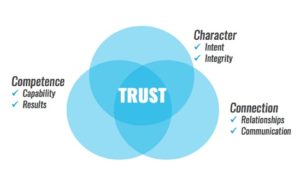 Of course, every sane person desires to be around great friends, great family and maybe even work for a great company. In fact, then Presidential Candidate Donald Trump got support in the United States in 2015/2016 with the promise of “Making America Great Again”.
Of course, every sane person desires to be around great friends, great family and maybe even work for a great company. In fact, then Presidential Candidate Donald Trump got support in the United States in 2015/2016 with the promise of “Making America Great Again”. (Source:
(Source: 


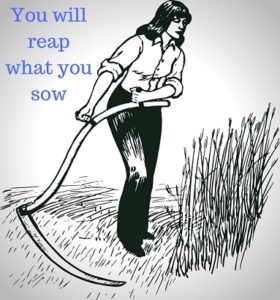 He who does nothing, makes no mistakes. – Old Adage
He who does nothing, makes no mistakes. – Old Adage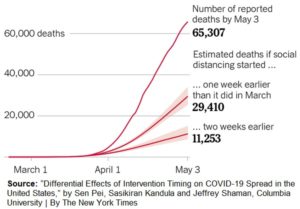 By the final days of February, many public health experts were
By the final days of February, many public health experts were 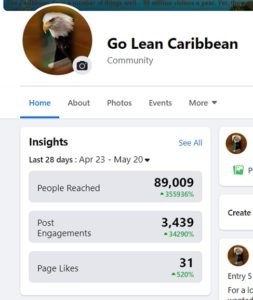
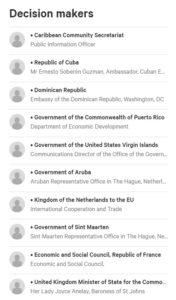
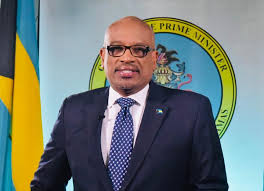




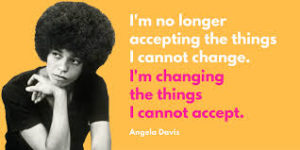

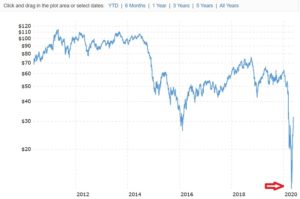
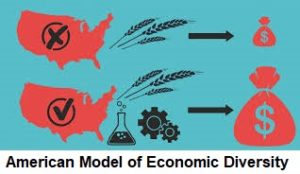
 Saudi Arabia finds itself at a significant economic crossroads. Home to the second-largest oil reserves in the world, the kingdom’s economy has been largely defined by the crude industry since drillers first struck oil in Dammam in March 1938. The discovery marked a watershed moment in the nation’s history, sparking an economic boom and propelling Saudi Arabia towards becoming one of the world’s wealthiest countries. Today, the nation is recognised as a global economic powerhouse, sitting among the G20 countries and boasting one of the highest GDPs in the Middle East.
Saudi Arabia finds itself at a significant economic crossroads. Home to the second-largest oil reserves in the world, the kingdom’s economy has been largely defined by the crude industry since drillers first struck oil in Dammam in March 1938. The discovery marked a watershed moment in the nation’s history, sparking an economic boom and propelling Saudi Arabia towards becoming one of the world’s wealthiest countries. Today, the nation is recognised as a global economic powerhouse, sitting among the G20 countries and boasting one of the highest GDPs in the Middle East. he strong urging to the Caribbean today is to:
he strong urging to the Caribbean today is to: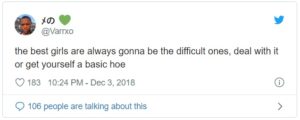


 The take-away from this foregoing “ugly” definition is that “basic is ‘plain and simple’”.
The take-away from this foregoing “ugly” definition is that “basic is ‘plain and simple’”. Thanks to the Coronavirus – COVID-19 crisis, the world is re-thinking the fulfillment of these basic needs. Believe it or not, in every jurisdiction Food Service workers are now regarded as Essential Workers. This is a fundamental change – a shift in values – for jobs that had previously been valued as inconsequential or unworthy for most, except the lowest in society; think the new immigrants (
Thanks to the Coronavirus – COVID-19 crisis, the world is re-thinking the fulfillment of these basic needs. Believe it or not, in every jurisdiction Food Service workers are now regarded as Essential Workers. This is a fundamental change – a shift in values – for jobs that had previously been valued as inconsequential or unworthy for most, except the lowest in society; think the new immigrants (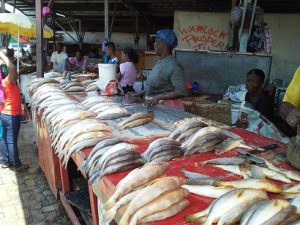 Rather than an insult, we need to be proud to be more technocratic in the fulfillment of our basic needs. “Plain and simple”, we need to:
Rather than an insult, we need to be proud to be more technocratic in the fulfillment of our basic needs. “Plain and simple”, we need to: In case you missed it:
In case you missed it: With the U.S. government declaring a state of emergency due to the coronavirus, companies are enabling work-from-home structures to keep business running and help employees follow social distancing guidelines. However, working remotely has been on the rise for a while.
With the U.S. government declaring a state of emergency due to the coronavirus, companies are enabling work-from-home structures to keep business running and help employees follow social distancing guidelines. However, working remotely has been on the rise for a while. Now for the corporate realizations and lessons-learned: perhaps businesses can accomplish Work from Home just as successfully as Work from the Office.
Now for the corporate realizations and lessons-learned: perhaps businesses can accomplish Work from Home just as successfully as Work from the Office. This is the business model for the Go Lean roadmap; while the rest of the world wrestle with the choices of which jobs to bring back to the workplace versus which jobs to allow to WFH, the Caribbean Union Trade Federation wants to present the proposals to bring those WFH jobs here. So maybe now, our Caribbean citizens can find new economic opportunities abroad without actually going abroad or abandoning the homeland.
This is the business model for the Go Lean roadmap; while the rest of the world wrestle with the choices of which jobs to bring back to the workplace versus which jobs to allow to WFH, the Caribbean Union Trade Federation wants to present the proposals to bring those WFH jobs here. So maybe now, our Caribbean citizens can find new economic opportunities abroad without actually going abroad or abandoning the homeland.
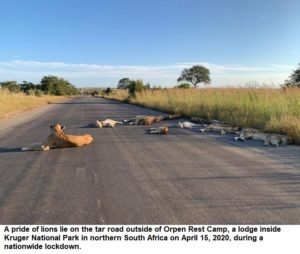 We need to Keep that Change.
We need to Keep that Change.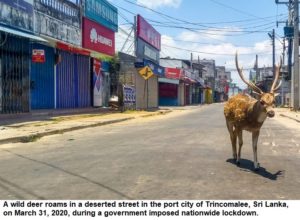

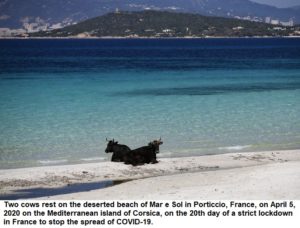


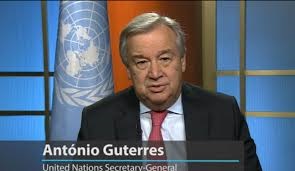 APRIL 22, 2020 – On the 50th anniversary of Earth Day, António Guterres, the secretary-general of the United Nations, had a message for the world: We face not one, but two global threats.
APRIL 22, 2020 – On the 50th anniversary of Earth Day, António Guterres, the secretary-general of the United Nations, had a message for the world: We face not one, but two global threats. The whole world must act now to remediate this crisis – flatten the curve – of this
The whole world must act now to remediate this crisis – flatten the curve – of this 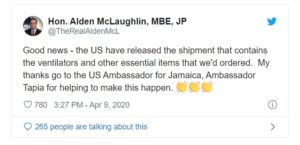
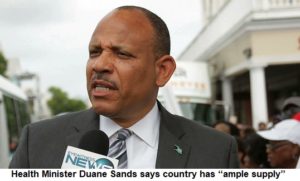
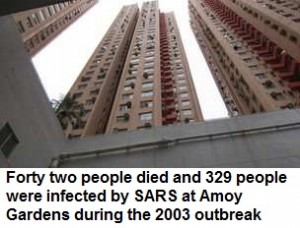 How can a community – the Caribbean region in this case – manage such an epidemiological crisis?
How can a community – the Caribbean region in this case – manage such an epidemiological crisis? The Go Lean book reports that previous Caribbean administrations have failed miserably in managing regional crises. There is no structure for cooperation, collaboration and coordination across borders. This is the charge of the Go Lean/CU roadmap. To effectuate change in the region by convening all 30 Caribbean member-states, despite their historical legacies or governmental hierarchy.
The Go Lean book reports that previous Caribbean administrations have failed miserably in managing regional crises. There is no structure for cooperation, collaboration and coordination across borders. This is the charge of the Go Lean/CU roadmap. To effectuate change in the region by convening all 30 Caribbean member-states, despite their historical legacies or governmental hierarchy.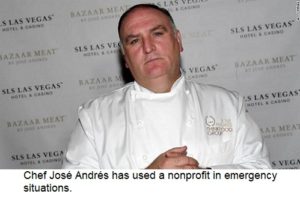 Celebrity chef José Andrés has mobilized his charity World Central Kitchen and set up camp near the Grand Princess cruise ship.
Celebrity chef José Andrés has mobilized his charity World Central Kitchen and set up camp near the Grand Princess cruise ship. We gotta eat!
We gotta eat!
